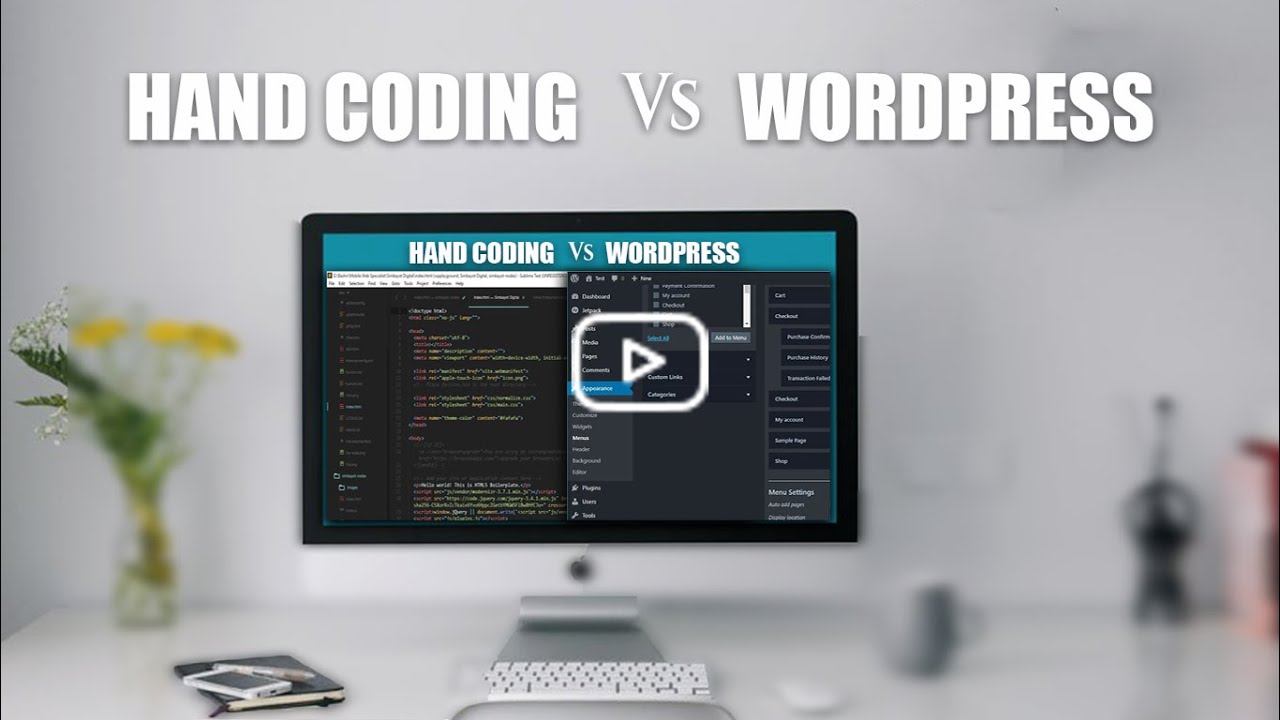
What is the Difference between Hand-coded Website and WordPress
Hand-Coded vs Website Builders
Speed and Performance
Hand-coded websites are like custom-made clothes: built from scratch using HTML, CSS and JavaScript. They load faster because they don’t rely on databases or plugins. Website builders like WordPress use templates and databases, which can slow down load times due to server-side processing.
Mobile Optimization
Hand-coded sites use a mobile-first approach, ensuring faster load times and better performance on mobile devices. Website builders often struggle with responsive design, leading to slower and less reliable mobile experiences.
Security
Hand-coded websites are more secure as they don’t rely on databases or third-party plugins, reducing vulnerabilities. Website builders, especially those using many plugins, can be more susceptible to attacks.
Cost vs. Investment
While website builders can be cheaper, hand-coded sites offer better performance and customization. Investing in a custom site can lead to higher returns by converting more visitors into customers.
Decision Making
If you need a fast, secure and high-performing site and can invest in it, a hand-coded website is a better choice. For basic needs and tight budgets, website builders might be sufficient.
